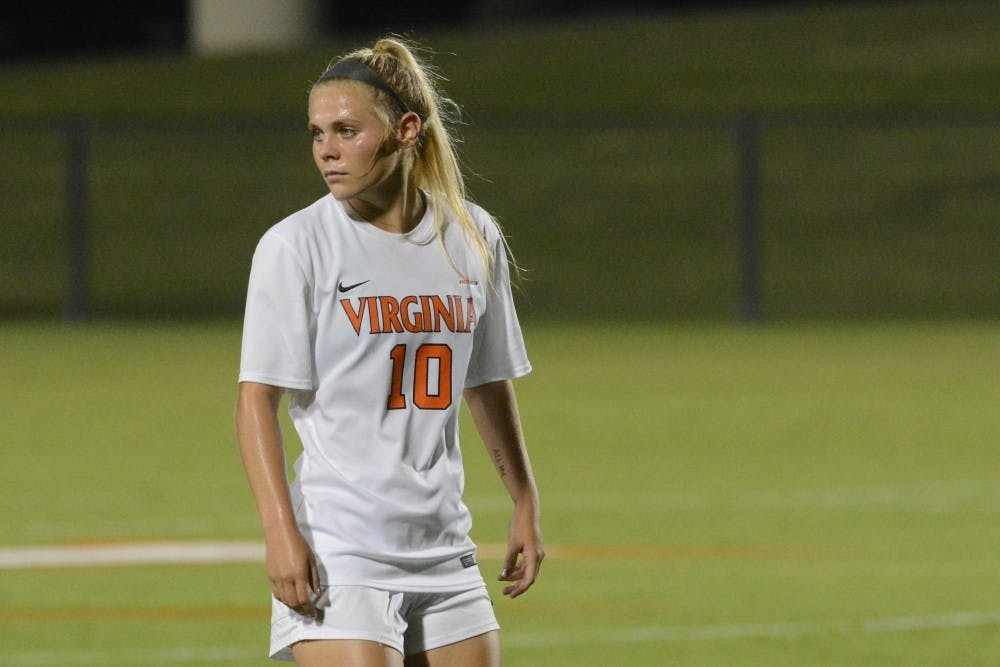Since the passage of Title IX in 1972, women’s sports have been required to receive funding proportionate to that of men’s sporting teams. Even though this landmark legislation gave women’s sports the legitimacy which they deserve, in the years following it has failed to give them the comparable public support to that of their male counterparts. In 2015, the final game of the women’s World Cup between the United States and Japan received the highest viewership in the United States of any soccer match — men or women — at just over 24 million viewers. However, this number still pales in comparison to the viewership of the Super Bowl or World Series each year. This data begs the question: If women’s sports receive equal funding as men’s sports, why do they still lack comparable public support?
Lack of support for women’s sports is an issue which pervades deep into our society from the professional level down to the high-school level. Here at the University, a school which prides itself on acceptance and gender equality, men’s sports still hold popular dominance over women’s sports. Our football team, which has touted a losing season since 2011, still sees thousands of visitors to each of its home games at Scott Stadium. Perhaps this is because attendance to football games is highly incentivized by tailgates, parties on Rugby Road and the allure of five Sabre Points per game. While the women’s soccer team has held a winning record since the mid 1980s, their games fail to see the same attendance as the football team’s home games.
The Sabre Point System acts as an incentive program to increase student attendance at sporting events and to expand the individual student’s odds at scoring the best seats via the Sabre Point lottery system to men’s basketball games. Each football game is worth five sabre points, while all other sporting events are worth only one, with the exception of 12 select games in the fall. No women’s sport consistently receives five Sabre Points per home game like the football team does. If the University Athletic Department really values women’s sports on the same level as the men’s teams, then five Sabre Points would be consistently awarded to each home game of at least one women’s team.
As a public institution, the University is under the obligation to provide equal opportunity for all students, regardless of gender. By awarding five Sabre Points per each home football game with no equivalent point scheme for women’s sports, University Athletics places a popular preference on men’s sporting teams and discriminates against women’s sports. While the Sabre Point system might not technically be classified as discrimination under Title IX, it certainly is discrimination in the sense in that the University Athletic Department places a clear and overt preference on attendance for football games. In order to place women’s sports on an equal playing field as their male counterparts, five Sabre Points must be awarded per each home game for at least one women’s team.
If a student can receive a total of 35 Sabre Points for attending all seven of the home football games and only 23 Sabre Points for attending all 11 of the women’s soccer home games, three of which are worth five Sabre Points, the student will mostly likely attend the all football games while skipping the majority of the women’s soccer games if they are seeking to maximize their Sabre Points. This logic can be applied to all other women’s sports at the University. Most of the students who are Sabre Point savvy will follow this rationale and thereby attend few, if any, women’s sporting events each season.
Furthermore, the University Athletic Department’s preference for the football team is masked by the illusion of equality by awarding five Sabre Points to a select 12 home games of a variety of fall sports. If the University Athletic Department really seeks true gender equality with women’s sports on an equivalent playing field with men’s sports, then attendance to women’s home games would be consistently incentivized instead of sporadically incentivized. This message of gender preferential treatment is not a message the University should be sending to female athletes and female students. There are many talented female athletes at the University who are just as deserving of an audience as male athletes.
Mary Alice Kukoski is a Viewpoint writer at The Cavalier Daily. She can be reached at opinion@cavalierdaily.com.







